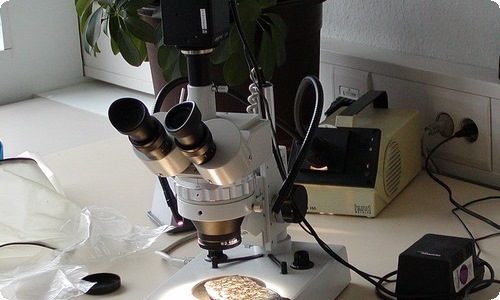
成功人士的10种减压方法
1. Calming Breath(深呼吸)
This is a fundamental relaxation technique that all stress types should practice. You have probably taken a deep breath before plunging into something – a difficult conversation, serving a tennis ball, trying not to cry. This will work while standing in line, sitting at your desk or preparing a meal. When you sigh, you are unconsciously using a relaxation technique by inhaling more air than usual and exhaling. Breathing deeply has a calming and centering effect, and you can do it anyplace, anytime for a quick fix for acute stress.
2. Smile or Laugh(笑一笑)
When you smile or laugh, endorphins are released from the brain. These endorphins are naturally produced chemicals that make a person feel good. A hearty laugh can also give the body an internal workout. The process of laughing instigates a cycle that makes you breathe faster and makes your muscles tense. Then your muscles relax, your breathing slows and your heart rate decreases. Smiling and laughing allows you to connect with something other than tension or stress, so think of a fond memory or focus on someone or something
3. People Watch(观看人潮)
Take a moment to enjoy the energy and excitement occurring right in front of you. During your lunch break or while running errands is a great time to let go of yourself, take in your surroundings and watch others. Even if just for a moment, this will help you to refresh and regroup.
4. Go Nuts Over Chocolate (吃零食)
To boost your brain and calm stress, eat a handful of walnuts and a piece of dark chocolate. Walnuts are full of omega-3s, essential fatty acids that elevate the mood, and tryptophan, an amino acid that, when combined with dark chocolate, provides your brain with the soothing effects of the beloved anti-stress messenger serotonin.
5. Listen to Music or Flip Through a Magazine (听一会儿音乐,看一会杂志)
Sometimes allowing yourself to be distracted momentarily is a helpful way to refocus in moments where you feel stress building up. By withdrawing your senses from life's demands and what is troubling you, you can gain control over your attention. Honing in on the music playing in a store or flipping through a magazine while in the checkout line is a great way to relieve whatever might be provoking stress in the moment.
6. Eight Words That Can Change Your Life(写一句激励自己的话)
It's not all that difficult when receiving an invitation to say, "Let me get back to you on that," then look at your schedule and see if the invite warrants the effort. It's a great way of managing your time and giving you the space you may need to reflect on the importance of every event you are invited to.
7. Help Someone(帮助他人)
Keep an eye out for those that may need assistance around you. One of our central themes in our book is that humans are social by nature. Your brain works in a way that reflects the world and people around us. When you make a positive social contact, your opioid pathways kick in and your stress response is quieted. Helping those around you is one of the best ways to counter stress. You are fulfilling a real social function when you do so.
8. Eat Breakfast Before Drinking Coffee, or Try Tea Instead(早餐前避免喝咖啡或茶)
If you must drink coffee, wait an hour or two until after breakfast, because it will interfere with the absorption of the nutrition you are getting. However, green tea is a much better beverage choice. It has less caffeine but is still stimulating and has additional health benefits, such as a rich supply of antioxidants, and it won't interfere with the absorption of your morning nutrients.
9. Exercise in the Sun(有氧运动)
Spend more time outdoors in natural sunlight in the morning to help elevate your mood. This will help synchronize your circadian rhythm – the internal biological clock that regulates your sleep cycle, your temperature regulation and your endocrine system.
10. Keep a Stress Journal (It Doesn't Have to Be Complicated)(将自己每天都压力记下来)
When you start feeling stressed, journal about what has happened during the day and see if your physical symptoms connect with your emotional patterns. Simply making these mind/body connections has been shown to relieve the pressure. Also, writing your thoughts in a journal will help you to control and manage anxieties, and will reduce those last-minute worries about having forgotten something important.




